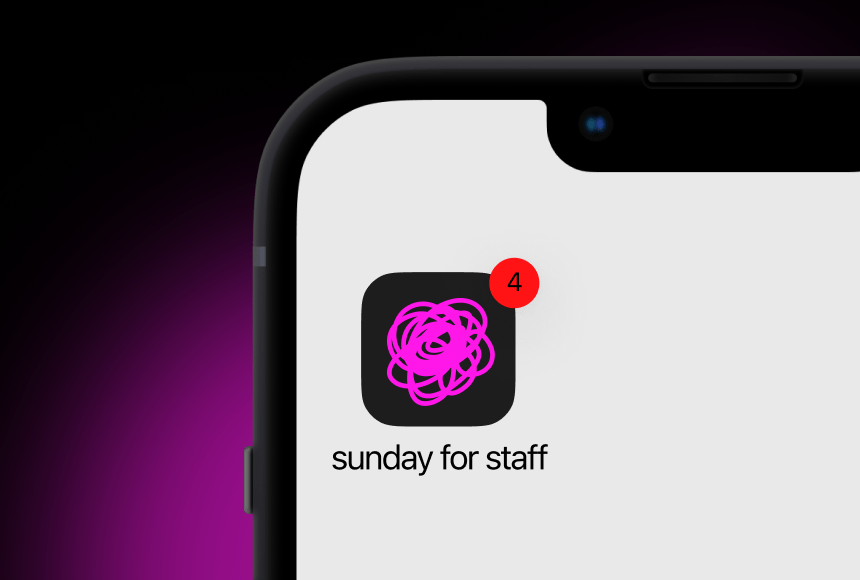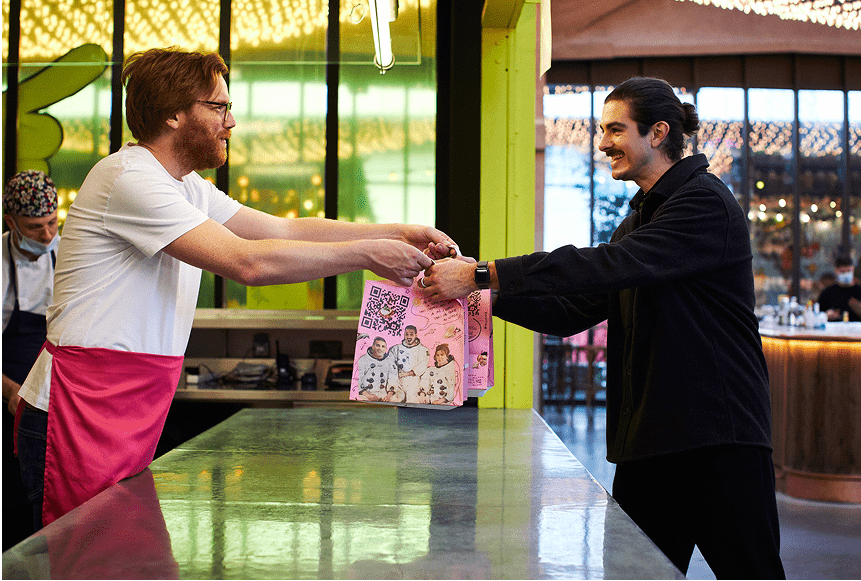
How to Steer Clear of Costly Staff Management Errors in Your Restaurant
1. Overlooking the Importance of Onboarding
One of the most frequent mistakes in restaurant staff management happens before your new hire even starts their first shift. Failing to provide a proper onboarding process can set the stage for confusion and dissatisfaction.
- Why It’s a Problem: New employees often feel overwhelmed if they’re thrown into service without clear guidelines. They don’t know who to report to, how to handle the POS system, or the specifics of your menu.
- How to Fix It: Draft a structured onboarding checklist. Introduce them to key team members, walk them through safety protocols, and offer a mini “tour” of your menu. Doing so ensures they feel supported from day one.
- The Benefit: Well-onboarded employees adapt faster and have fewer mishaps, making for smoother operations and happier guests.
When newcomers feel welcomed and informed, they’re more likely to stay. And that’s critical in an industry often plagued by high turnover (Modern Restaurant Management).
2. Neglecting Clear Communication Channels
Restaurants are a hive of activity, with front-of-house and back-of-house staff juggling orders, special requests, and dietary restrictions. If your communication is disorganised—or worse, non-existent—mistakes become inevitable.
- Why It’s a Problem: Misunderstandings waste time, cause errors in orders, and frustrate staff. A server might not alert the kitchen to an allergy note, or a cook might not inform the front-of-house about a shortage on a popular starter.
- How to Fix It: Hold brief pre-shift meetings. Use a simple, shared system (like a staff app or a noticeboard) to highlight the day’s specials, reservations, or staff absences.
- The Benefit: Clear communication saves everyone headaches and helps your team function like a well-rehearsed ensemble.
When staff know exactly what’s happening and feel comfortable voicing concerns, they can deliver better service. That translates into fewer mistakes, higher efficiency, and happier diners.
3. Not Setting Realistic Expectations and Roles
Picture this: you hire someone to wait tables, but within weeks, they’re also greeting guests at the door, restocking bar supplies, and handling private event bookings. While flexibility is good, consistently pushing staff beyond their job scope leads to burnout and confusion.
- Why It’s a Problem: Employees can’t perform optimally if they’re juggling tasks they haven’t been trained for, or if they’re stretched too thin.
- How to Fix It: Clearly define roles and responsibilities from the start. If cross-training is encouraged, make sure you provide the proper support and guidance. Allocate tasks in a way that matches each person’s strengths.
- The Benefit: When everyone knows their role, accountability improves, reducing the likelihood of errors and misunderstandings.
Whether you’re a small café or a large restaurant group, consistent job descriptions and well-defined responsibilities prevent staff from feeling overwhelmed. This clarity also boosts job satisfaction.
4. Inadequate Training Programmes
Just because someone has experience in the industry doesn’t mean they automatically align with your restaurant’s standards and service style. Many managers assume staff should learn “on the fly,” but structured training can save endless time and headaches later.
- Why It’s a Problem: Untrained employees make more mistakes, struggle with upselling, and aren’t prepared to handle special requests or high-pressure situations.
- How to Fix It: Develop training manuals or short workshops covering essentials like food hygiene, menu knowledge, and your point-of-sale system. Pair new hires with seasoned “buddies” who can guide them through a typical service.
- The Benefit: Staff with proper training feel more confident, leading to better customer interactions and fewer service hiccups.
Investing in training pays off. Well-informed teams will communicate your brand’s story effectively, handle peak hours gracefully, and strengthen your establishment’s reputation.
5. Failing to Recognise and Reward Staff
It’s easy to get so focused on daily tasks—like managing stock, dealing with vendors, and satisfying customers—that you forget to appreciate your team. Overlooking your staff’s efforts can lead to low morale, reduced loyalty, and eventually higher turnover.
- Why It’s a Problem: Hospitality can be demanding. A lack of recognition makes it tougher for staff to stay motivated through long shifts and stressful customer interactions.
- How to Fix It: Celebrate milestones and achievements, no matter how small. Did a server consistently upsell starters? Give them a shoutout at the end of the shift. Did a chef handle a particularly hectic service flawlessly? Treat them to a small bonus or a simple “thank you” card.
- The Benefit: Recognised staff feel valued and are more likely to go above and beyond to ensure a great guest experience.
Gratitude costs little but yields huge returns. When staff feel seen, they bring more energy and dedication to their roles, enhancing both team spirit and customer satisfaction.
6. Ignoring the Power of Technology
Many restaurants still wrestle with outdated systems—handwritten orders, paper logs, slow card machines—causing inefficiencies and confusion. In a fast-paced environment, these small delays add up, making staff management an uphill battle.
- Why It’s a Problem: Slow payment processes frustrate both staff and customers. Mix-ups in orders arise if there’s no centralised tracking system, and important data (like trends in ordering or peak-hour insights) gets lost.
- How to Fix It: Embrace modern solutions. For instance, a unified POS software ensures all orders and stock levels sync in real time. A platform like sunday lets customers pay via QR code at the table, freeing your team from constant card machine runs and letting them focus on service.
- The Benefit: Quick, hassle-free payments boost table turnover and improve your bottom line. Staff stay energised instead of getting bogged down in repetitive tasks.
Technology should simplify, not complicate. By choosing user-friendly tools, you empower your staff to work more efficiently and offer a top-notch guest experience.
7. Underestimating the Impact of Scheduling
Ever found yourself short-staffed during a bustling dinner service? Or maybe you’ve got too many hands on deck on a slow Monday afternoon? Poor scheduling doesn’t just harm your bottom line; it disrupts the morale of your whole team.
- Why It’s a Problem: Overworked staff become stressed and prone to errors, while underworked employees feel their time isn’t valued. Inconsistent scheduling can also lead to last-minute callouts.
- How to Fix It: Use data to forecast busy times. Plan your rotas accordingly, balancing out peak hours with enough coverage. Offer flexible shift-swaps so employees can manage emergencies without leaving you in a bind.
- The Benefit: A well-balanced schedule increases productivity and keeps service quality consistent, preserving your restaurant’s reputation.
By aligning staffing levels with actual demand, you’ll reduce labour costs and keep your team fresh, ready to handle the busiest nights with a smile.
8. Avoiding Constructive Feedback
No one relishes giving or receiving criticism, but avoiding performance discussions altogether can lead to festering issues. Staff might develop bad habits or remain unaware of potential improvements if feedback is never offered.
- Why It’s a Problem: Bottled-up concerns can explode at inopportune moments, damaging relationships and customer experience. Staff also miss opportunities to grow if managers gloss over areas needing improvement.
- How to Fix It: Implement regular check-ins—short, casual chats where you discuss performance highs and lows. Pair constructive feedback with specific guidance on how to improve.
- The Benefit: Ongoing feedback helps staff refine their skills, resulting in a smoother operation and a stronger team dynamic.
Effective feedback is timely, specific, and actionable. When delivered kindly, it can transform minor missteps into valuable learning experiences.
9. Micromanaging Instead of Leading
While your goal might be consistency and excellence, hovering over every plate or insisting on rigid compliance with minute details can backfire. Employees who feel micromanaged become anxious and lose their sense of ownership.
- Why It’s a Problem: Constant scrutiny sends a signal that you don’t trust your team’s competence or judgment. Over time, this undermines confidence and stifles initiative.
- How to Fix It: Delegate effectively. Set clear guidelines and standards, then trust your employees to meet them. If issues arise, address them calmly and constructively.
- The Benefit: Empowered staff are more creative, engaged, and eager to contribute new ideas—qualities that can elevate your restaurant above the competition.
Leadership is about guiding and mentoring, not breathing down your team’s neck. A restaurant environment thrives when people feel accountable yet supported.
10. Neglecting Staff Well-Being
Hospitality is notorious for long hours, late nights, and weekend shifts. If you neglect the mental and physical well-being of your employees, burnout can quickly set in.
- Why It’s a Problem: Overworked, stressed employees are more likely to quit or make mistakes. High turnover disrupts service and forces you to spend more time recruiting and training.
- How to Fix It: Encourage breaks during shifts, offer flexible scheduling where possible, and consider small wellness benefits—like staff meals or discounted gym memberships.
- The Benefit: A well-rested, balanced team performs better, treats guests more warmly, and stays with you for the long run.
Looking after your team’s wellness isn’t just good ethics—it’s good business. The positive energy they bring to their shifts will be felt by customers, often reflected in higher satisfaction and better reviews.
11. Overlooking Ongoing Growth and Promotion
A restaurant that doesn’t offer growth paths can feel like a dead-end job for ambitious staff. People thrive on development—learning new skills, taking on more responsibility, and moving up the ranks.
- Why It’s a Problem: Talented individuals will seek opportunities elsewhere if they see no room to progress. This churn prevents you from cultivating a stable, experienced core team.
- How to Fix It: Outline clear career paths, such as moving from server to shift supervisor or from line cook to sous chef. Provide regular training sessions on leadership, wine pairing, or advanced kitchen techniques.
- The Benefit: Employees who see a future in your restaurant are more motivated to learn, excel, and stay put.
Demonstrating your commitment to staff development makes them feel valued, boosting morale and creating a positive culture where talented professionals genuinely want to stay.
Creating a Future of Success for Your Team
Effective restaurant staff management isn’t a “nice-to-have”—it’s the essential foundation for providing exceptional customer experiences. By avoiding common mistakes—such as insufficient onboarding, unclear communication, or outdated payment systems—you pave the way for a cohesive, motivated team.
Remember that every detail matters. Encouraging open dialogue, celebrating achievements, and embracing new technology like sunday can all lighten the load on your staff and free them to focus on what really counts: delighting your guests. Easy payment solutions reduce queueing at the card machine, while thoughtful scheduling helps each team member maintain their energy levels during peak hours.
With these pitfalls on your radar, you can transform your restaurant into a place where staff are proud to work and customers love to dine. It might take time to adjust your management style, but the rewards—lower turnover, stronger sales, and glowing reviews—are well worth the effort.
Find out more today
Drop us your details below and we’ll reach out within the next 24
Get the full, detailed picture.
sunday elevates your business with insightful data, instant feedback and precise analytics.




